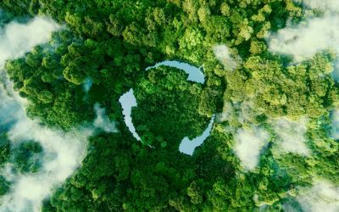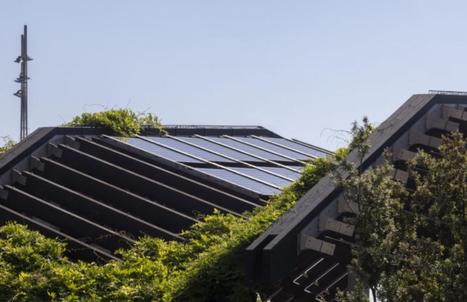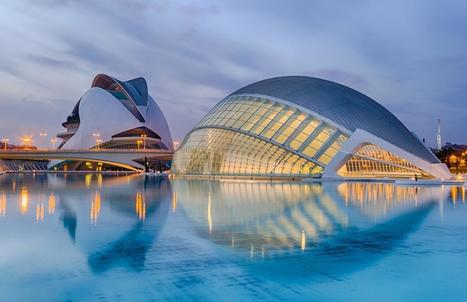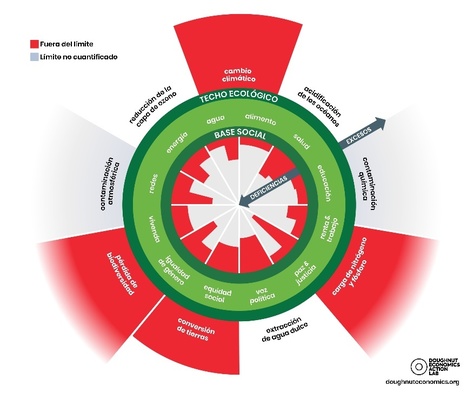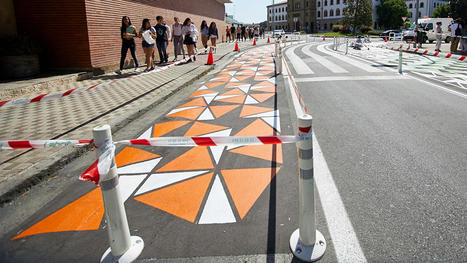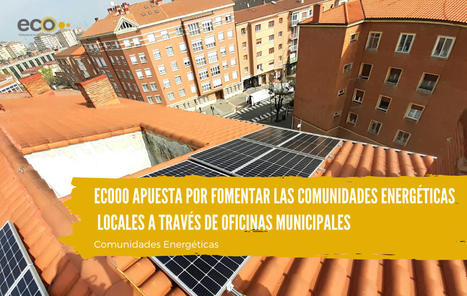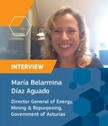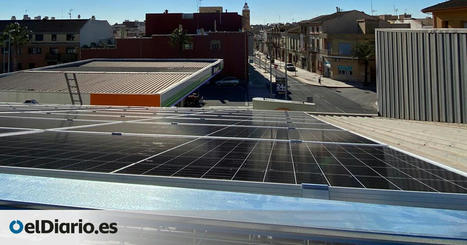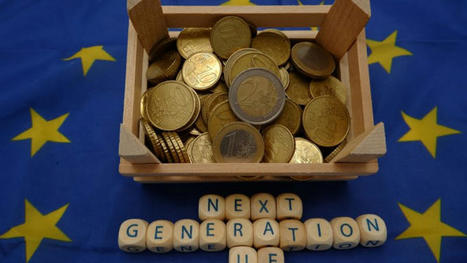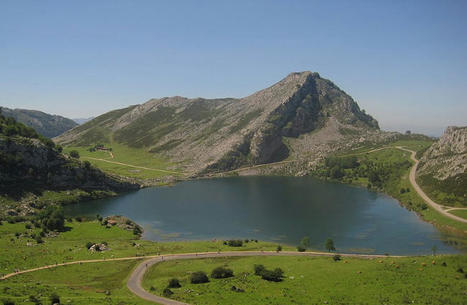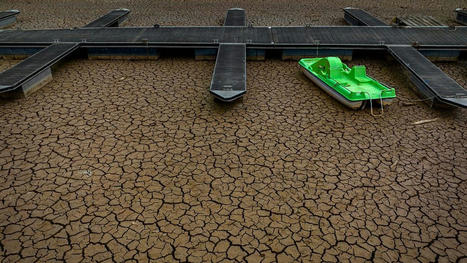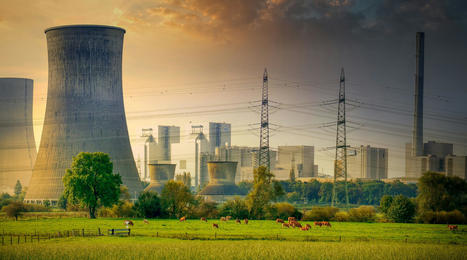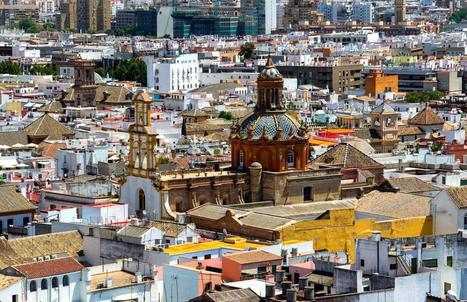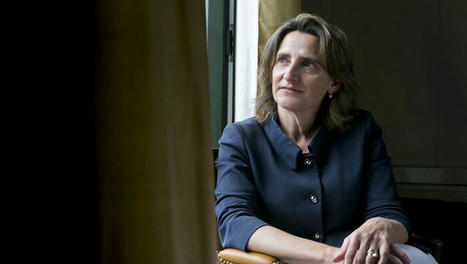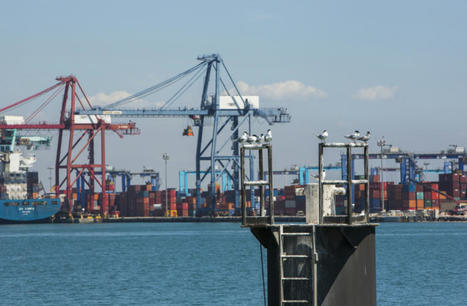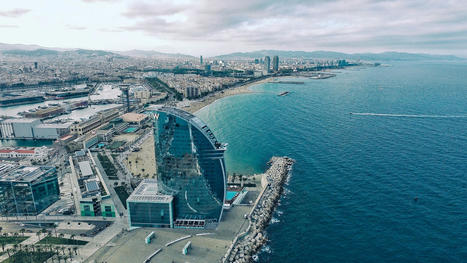 Your new post is loading...

|
Scooped by
Energy Cities
July 25, 10:02 AM
|
Children living in greener neighbourhoods have better lung function, according to a new study.
The research, led by the Barcelona Institute for Global Health (ISGlobal), looked at data from 35,000 children in eight different European countries - Denmark, France, Italy, Lithuania, Norway, the Netherlands, Spain and the UK.

|
Scooped by
Energy Cities
October 31, 2023 11:42 AM
|
Spain is on the right path to clean transport’s energy via electrification and to make the transport system more energy efficient through modal shift and less mobility. However, some room for improvement remains.
Spain has wisely included in the draft NECP the decision of eliminating soy and palm biofuels in 2025 but it still has to be approved.It is also setting lower caps on first generation biofuels and opting to electrify transport.

|
Scooped by
Energy Cities
May 24, 2023 9:57 AM
|
Madrid has started the construction of a model zero-emission district called Madrid Nuevo Norte. The development will be a flagship marker in the city’s Madrid 360 Environmental Sustainability Strateg..

|
Scooped by
Energy Cities
January 4, 2023 2:52 AM
|
Spain is on track to phase out coal for energy production ahead of its initial planning of 2030. The EU will help deliver a just climate transition in the regions affected by the corresponding closures of coal mines and coal power plants. This includes most notably the region of Asturias, which will receive almost one third of the Spanish JTF funding.

|
Scooped by
Energy Cities
May 17, 2022 11:51 AM
|
Authorities in Barcelona have announced the start of a pilot test that will see the provision of free solar energy to low-income families in the city with the goal of lightening their energy bills. The electricity will be produced and provided by photovoltaic pergolas installed in public spaces around the city. The proposed aim of the project is to see whether this is a viable path to creating self-sufficient energy communities in the Catalonian capital. Likewise, it is a way to maximize the efficient use of public space surfaces in a way that brings benefits to the communities living in their vicinity.

|
Scooped by
Energy Cities
November 4, 2021 12:55 PM
|
Bordeaux (France) and Valencia (Spain) are the EU’s new Capitals of Smart Tourism for 2022. Representatives from the two cities will receive the official award at a formal ceremony during the European Tourism Forum in Brussels on 16 November.
The European Union initiative, taking place thanks to financing from the COSME Programme, seeks to recognize exceptional performance and achievements of European cities in the field of tourism. More specifically, there are four categories that jury uses to evaluate the candidate cities: Accessibility, Sustainability, Digitalisation, and Cultural heritage and creativity.

|
Scooped by
Energy Cities
August 17, 2021 9:34 AM
|
The City of Barcelona in Spain has announced that it is embracing the tools and concepts of Doughnut Economics to guide actions to address the climate emergency and the city's ecological transition.
The initiative was launched during a press conference on July 29, 2021 - the same day as Earth Overshoot Day - which was hosted by Barcelona City Councillor Eloi Badia i Casas.

|
Scooped by
Energy Cities
April 21, 2021 6:08 AM
|
El Ayuntamiento de Pamplona pone en marcha un plan para convertir, a lo largo de 2021, los entornos de los sesenta centros escolares de la capital en espacios seguros a través de acciones como el aumento del tamaño de las aceras, la reducción de la anchura de las calzadas o la señalización y colocación de elementos para que los vehículos reduzcan su velocidad.

|
Scooped by
Energy Cities
March 25, 2021 12:16 PM
|
La cooperativa energética de no lucro Ecooo diseña el servicio de acompañamiento, asesoría y desarrollo de Oficinas Energéticas municipales, para apoyar a los diferentes ayuntamientos del país en el impulso de Comunidades Energéticas, con el objetivo de promover un modelo de generación y consumo energético sostenible, abierto a la participación ciudadana y local.

|
Scooped by
Energy Cities
March 11, 2021 8:22 AM
|
In this interview, María Belarmina Díaz Aguado, Director General of Energy, Mining & Repurposing, Government of Asturias (Spain), talked to us about Asturia's challenges in their path towards decarbonisation. We discussed their industrial legacy, their action plans and how the START programme helped them open up to technical assistance and seek out improved ways of undertaking stakeholder engagement.

|
Scooped by
Energy Cities
February 26, 2021 2:03 AM
|
En España hay 33 entidades de estas características, ocho de ellas en la Comunitat Valenciana, frente a las 1.750 de Alemania, las 700 en Dinamarca, unas 500 en Países Bajos ó 70 en Francia

|
Scooped by
Energy Cities
February 25, 2021 5:23 AM
|
Eight months have passed since Commission President Ursula von der Leyen presented Europe’s recovery efforts before the European Parliament. During this time, our Union has made history, write Luis Garicano, Martin Hojsík and Gergely Karácsony.

|
Scooped by
Energy Cities
February 18, 2021 8:02 AM
|
There will be social, cultural and relational repercussions that must be accounted for to uphold just transition: to leave none behind.
|

|
Scooped by
Energy Cities
March 11, 6:20 AM
|
At the end of last week, it was announced that Spain will ban certain short-haul domestic flights as part of its 2050 climate action plan. The benchmark to decide which flights will be cancelled will depend mainly on whether there is a high-speed train route that can connect the same two points in less than two and a half hours.

|
Scooped by
Energy Cities
August 1, 2023 8:09 AM
|
An efficient EU Energy Performance of Buildings Directive must look out for the reduction of ‘whole life carbon emissions’ in order to achieve Europe’s climate goals, writes Zsolt Toth from BPIE in an article on the EURACTIV website. Embodied carbon: Addressing now the hidden carbon cost of our buildings With the recognition that Europe’s buildings…

|
Scooped by
Energy Cities
April 20, 2023 7:20 AM
|
It isn’t the first time the region has faced water shortages but experts say they are now getting more frequent and intense due to climate change.

|
Scooped by
Energy Cities
May 17, 2022 11:55 AM
|
Tthe Regional Government of Castile and Leon and the Valladolid City Council have signed up an agreement that will allow the creation of the third biomass heating network in the city. The 'West Valladolid' Sustainable Heating Network project, whose first works will go out to tender today, is scheduled for commissioning for the 2023-2024 heating season.
In concrete numbers, the “West Valladolid” will supply heating and hot water to 10,200 homes and 67 buildings in the neighbourhoods of Villa del Prado, Parquesol and the southwest area of Huerta del Rey. It will involve a total investment of 30 million euros plus VAT and the creation of 72 jobs. It will also save users between 30% and 50% of their energy bill, in addition to reducing greenhouse gas emissions by 31,300 tons of CO2/year and increasing the energy independence of Castile and Leon.

|
Scooped by
Energy Cities
November 4, 2021 1:52 PM
|
Spain is on track to phase out nuclear power and coal power and to decommission several oil-fired plants between 2025 and 2035, and replace them with renewables. However, the country will need to invest in energy storage technologies to strengthen the security of supply.

|
Scooped by
Energy Cities
November 4, 2021 12:43 PM
|
By likening them to hurricanes and storms, the new strategy will emphasize the health impact of heatwaves
Seville is about to bring more attention to heatwaves – a problem that is common, and frequently devastating, to the south of Spain. Last week, its mayor Juan Espadas announced a new multi-partner initiative that will seek to study, analyze and categorize these annual climatic events and the way they affect the environment and health of the city’s residents.

|
Scooped by
Energy Cities
May 18, 2021 7:32 AM
|
Spain’s parliament voted in favour of the long-awaited climate law, which commits the country to cut emissions 23% by 2030, compared with 1990 levels.
The law bans all new coal, gas and oil exploration and production permits with immediate effect, prohibits the sale of fossil fuel vehicles by 2040 and enshrines a goal to generate 74% of the country’s electricity with renewable sources by 2030.

|
Scooped by
Energy Cities
April 1, 2021 7:56 AM
|
Cities such as Barcelona and Valencia are among the most exposed in Europe to phenomena such as heatwaves, floods, storms or droughts, which will be more and more frequent and could alter coastal areas. In this context, climate information is essential to face the challenges of climate change and adapt these cities and their surroundings to present and future adversities.
In this regard, the mayors of Barcelona and Valencia, Ada Colau and Joan Ribó, underlined the key role of cities in managing the climate crisis. By concentrating a large part of the population, large cities are the main sources of greenhouse gas emissions globally and in the case of the Mediterranean region, they are also areas with a great potential impact of climatic extremes.

|
Scooped by
Energy Cities
March 23, 2021 11:30 AM
|
The experience of lockdowns across European cities has driven home the importance of access to green space to health and quality of life. In Spain, the political renewal seen in many towns after the municipal elections of 2015 helped push public space and biodiversity up the local agenda. Today, rewilded rivers in Madrid or Errenteria in the Basque country are examples of how investment and imagination can transform urban environments for the better.

|
Scooped by
Energy Cities
March 2, 2021 8:58 AM
|
Rising demand for environmentally friendly investments is focusing attention on Spain's under-exploited solar and more established wind sector, helped by government

|
Scooped by
Energy Cities
February 25, 2021 2:02 PM
|
Spanish Valenciaport is making its debut in 2021 by joining the club of twelve international ports committed to decarbonisation and emission reduction projects.
The Port of Valencia (PAV) is now a member of the World Ports Climate Action Program (WPCAP), a working group that jointly promotes actions against climate change and that collaborates closely with the International Association of Ports and Harbours (IAPH).

|
Scooped by
Energy Cities
February 22, 2021 7:42 AM
|
The City Council’s Municipal Institute for Urban Landscape and Quality of Life (IMPUQV) is offering subsidies to help protect and improve the urban landscape. With 1.3 million euros available, the funding is aimed at promoting the recovery of heritage while taking into account environmental sustainability and backing small commerce. In this respect, the call includes subsidies for commercial establishments carrying out work on their premises, which are a key part of Barcelona’s urban landscape. At the same time, the subsides include specific sections for protected historical premises and those without protection.
|
 Your new post is loading...
Your new post is loading...






